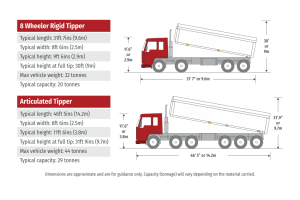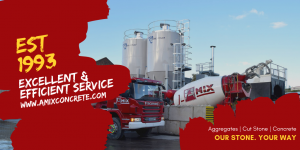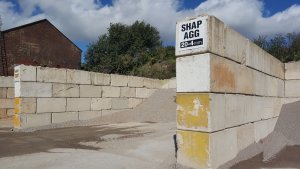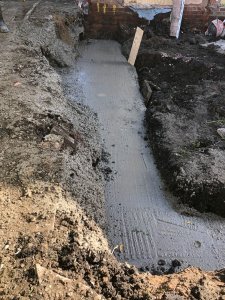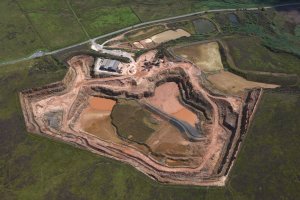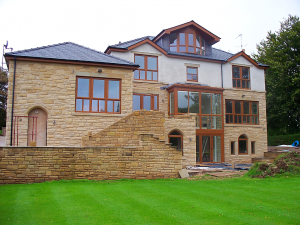Muck Away
You know about our quarries, you have seen our ready mix concrete and our bespoke cut stone products. However, did you know that we also offer Muck Away services too? In this blog we will explain what muck away is, and how we can help you with it.
What is muck away?
Muck away is the simple process of removing inert waste from various sites. Muck away is normally required by councils, trades people, farmlands and construction sites. If you are undertaking a project that will produce large amounts of inert waste, it would be worthwhile to arrange a muck away service.
Types of muck away
Muck away can be classified into three categories: inert, hazardous and non-hazardous.
Inert muck away is defined as waste that has not gone through any chemical physical or biological changes and thus is less likely to affect any other matter that it comes into contact with. Inert muck away includes brick, concrete, hardcore soil and subsoil.
Hazardous muck away is defined as a gathering of waste that has properties that make it harmful to the human health and the environment.
Non-hazardous materials can include a collection of different waste products that are considered not harmful to the environment and human life.
How do we muck away?
The service we offer at Armstrongs is carried out by our modern tipper fleet. This means we have a fleet of 70 wagons available at our disposal to suit a wide range of muck away needs for our customers. Our fleet consists of tipper wagons- we believe these trucks are the best for muck away. We can also provide excavators or wheel loaders to the site. This makes the muck away service completely hassle free for your project.
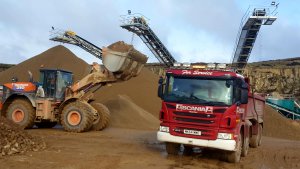
Our Fleet
Our fleet is powered entirely by Scania. The fleet that is available for muck away is as followed:
8 Wheel Rigid Tipper- Capable of up to 20 Tonnes muck away
Articulated Tipper- Capable of up to 29 Tonnes of muck away
Where does the collected muck go?
Once our tipper trucks are full of waste they will be transported to our inert landfill at Pilkington Quarry in Horwich. We separate the waste by classification of inert and Non-Hazardous waste. Inert waste such as soil is returned to the land. However, other materials such as brick and concrete are recycled.
Recycling Aggregate
Recycling waste is a great way to help our environmental footprint. As a result of this, At Armstrongs we strive to reduce the amount of waste that goes to our landfill. Armstrongs crush brick and concrete into small aggregate to be used in the construction of roads, whilst green waste can be used to make compost to be sold as fertiliser.
We aim to recycle as much muck away as is physically possible with aiming only to return soil and spoil to the land.
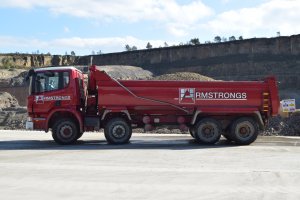
Landfill
As well as collecting from various sites Pilkington Quarry accepts inert waste landfill. As a result, Pilkington 1 is exhausted but carries permissions to receive 2m tonnes of inert waste, whilst Pilkington 2 is as yet unmined but carries a pale buff/brown, highly durable gritstone.
If you would like to enquire about inert waste tipping at Pilkington Quarry then contact us today on 01204 668021.
For enquiries about our services give us a call today or email us at enquiries@armstrongsgroup.com
You can also contact us and follow our updates across our social channels on Facebook, Twitter and Instagram.
Read More
